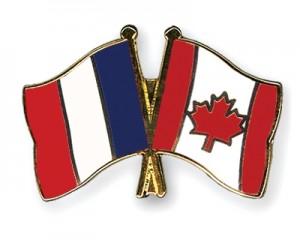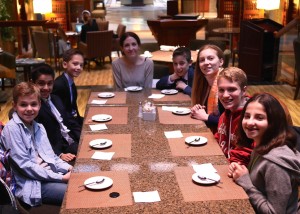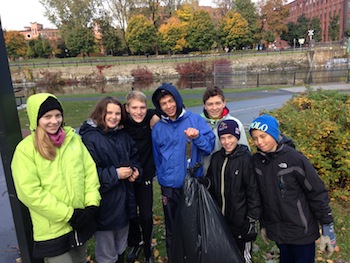 Samedi 21 novembre, une dizaine d’élèves du MS Pride sont allés faire du service communautaire dans un centre d’accueil pour femmes à Montréal : Chez Doris. Cet organisme offre des conseils, de la nourriture et du réconfort aux personnes qui en ont le plus besoin.
Samedi 21 novembre, une dizaine d’élèves du MS Pride sont allés faire du service communautaire dans un centre d’accueil pour femmes à Montréal : Chez Doris. Cet organisme offre des conseils, de la nourriture et du réconfort aux personnes qui en ont le plus besoin.
Cette idée a pris racine lors d’une conférence Round Square pendant laquelle des élèves de GNS, une école à Victoria en Colombie-Britannique, nous ont parlé d’un projet qui est très populaire chez eux. Trois fois par an, ils organisent une collecte de fonds, achètent de la nourriture, vont dans un centre d’accueil, font la cuisine, servent les plats et discutent avec les personnes présentes. Nous nous sommes dit que nous pourrions faire quelque chose de similaire à Montréal.
Nous avions fait connaissance avec la responsable des bénévoles de Chez Doris : Thea Walker. Nous avions l’organisme, il nous fallait mettre au point la logistique de l’évènement;
– Organiser une vente de bonbons pour ramasser des fonds;
– Visite de Thea à LCC pendant un repas afin de présenter le centre et « les clientes »
– Trouver une commandite pour le dessert!
Le jour J, de 10h00 à 15h00, les élèves ont travaillé sans relâche, ne ménageant pas leur peine et leurs sourires pour les femmes du centre. En tout, 70 repas ont été servis dans la bonne humeur. Nous tenons à remercier l’entreprise Cool et Simple pour avoir gracieusement fourni l’accompagnement du plat principal et aussi des excellentes tartes au chocolat et praliné qui ont été la touche finale de cette expérience culinaire.
De plus, les élèves ont aussi improvisé un petit concert, participé au bingo, créant ainsi une atmosphère festive dans cet établissement.
Nous sommes donc prêts pour notre deuxième édition! Avec cette fois-ci un spectacle musical pendant le repas.
Commentaires des étudiants:
This experience was definitely one of the more humbling experiences I’ve had. It was not sad, but rather warm, as all of the women were extremely kind and loving. Toutes les femmes ont été extrêmement gentilles et généreuses. En fait, je pense que Chez Doris est une des communautés les plus exemplaires que j’ai vue. – Andrew Vandenbussche ’19
J’ai beaucoup aimé mon expérience à Chez Doris! I had fun during the activities and we all enjoyed ourselves very much. – Andrew Fata ’19
La journée à Chez Doris était pleine d’activités amusantes. On a cuisiné pour les femmes, parlé avec elles et aussi joué au bingo. Chez Doris was a great experience and I’m looking forward to going back soon. We cooked, met a lot of different people, played BINGO and got to help out our community which was a lot of fun. – Ella Waxman ’19
Taking part in community service at Chez Doris was a very memorable and heartwarming experience. Je vous encourage tous à participer à la prochaine sortie “Chez Doris” pour rendre service et recevoir des beaux sourires. – Jane Robeck ’19






